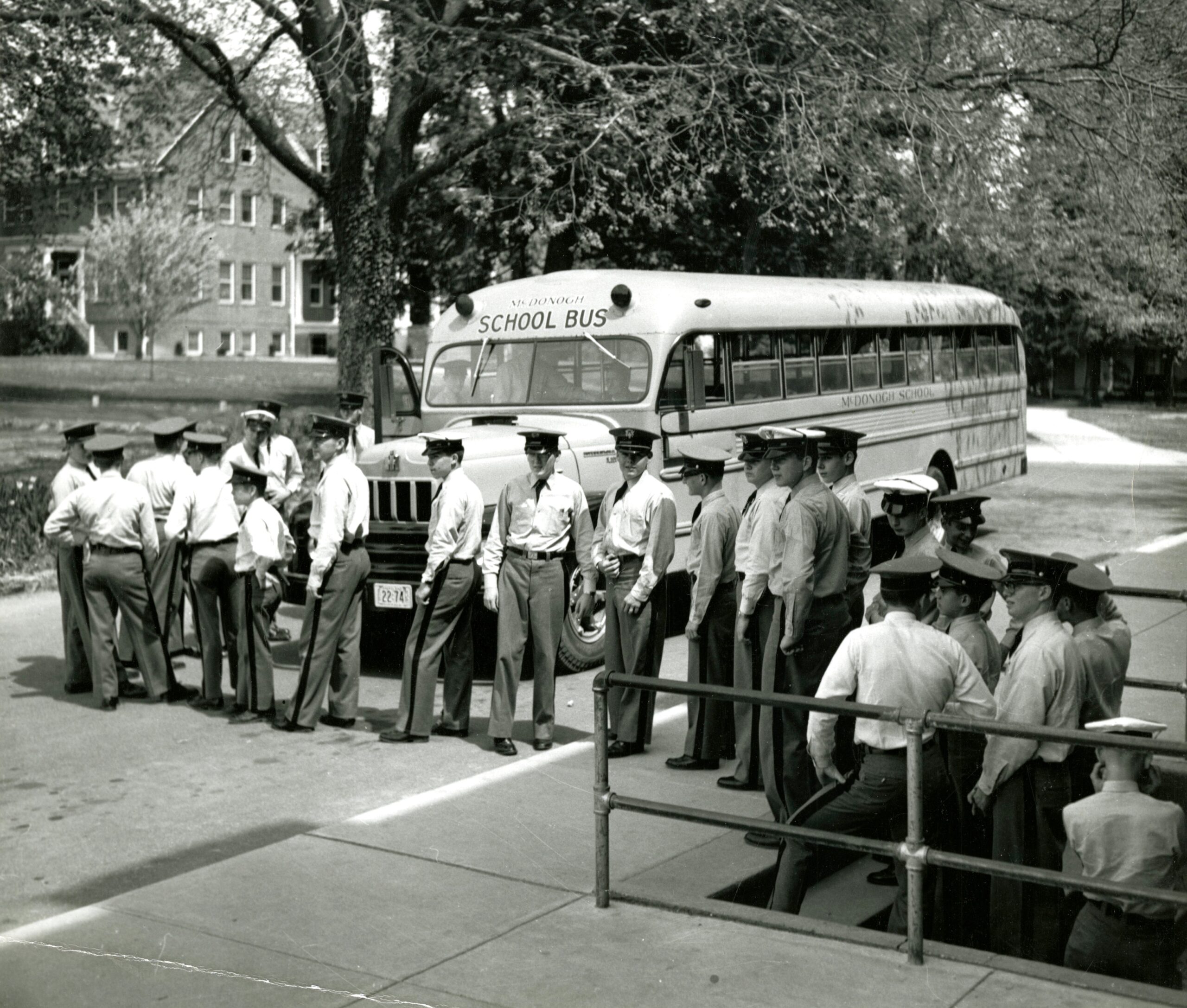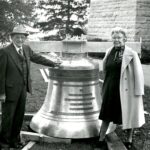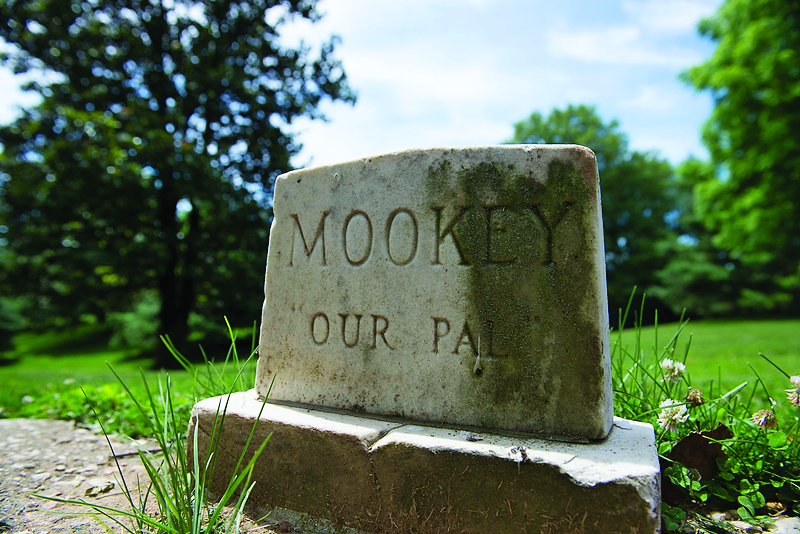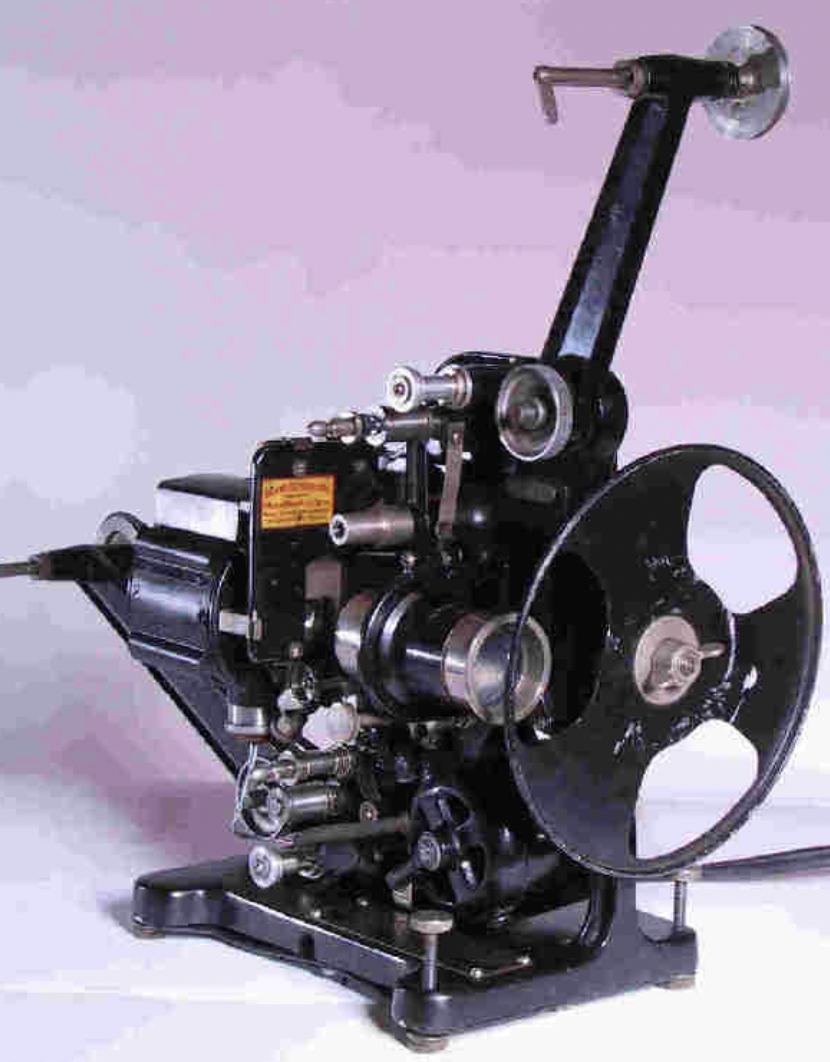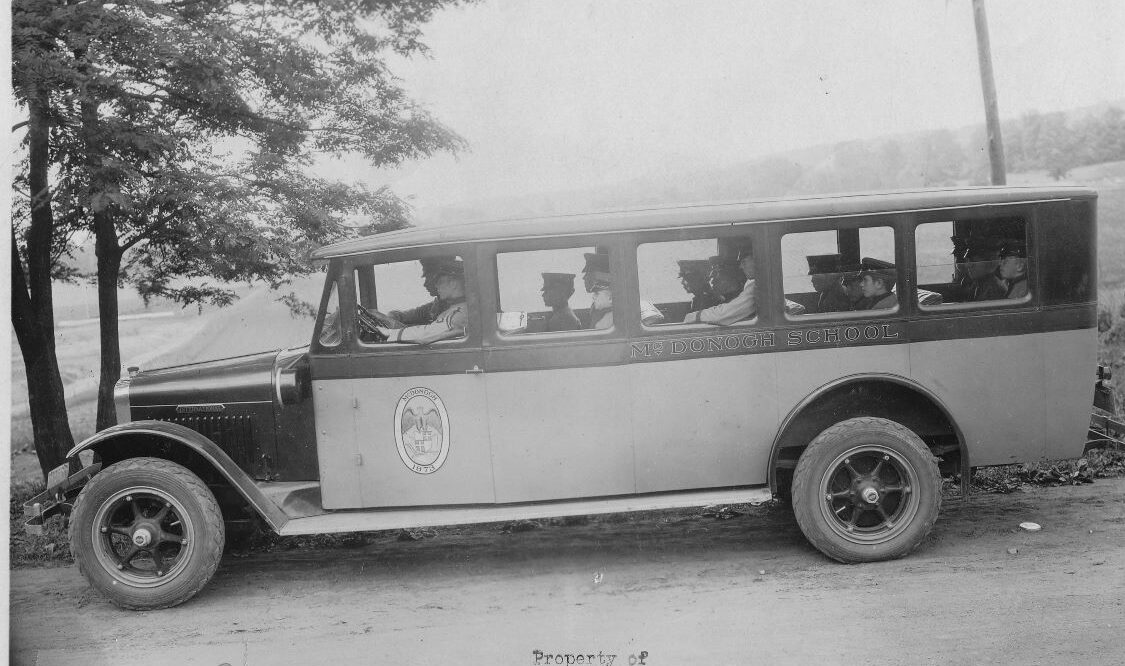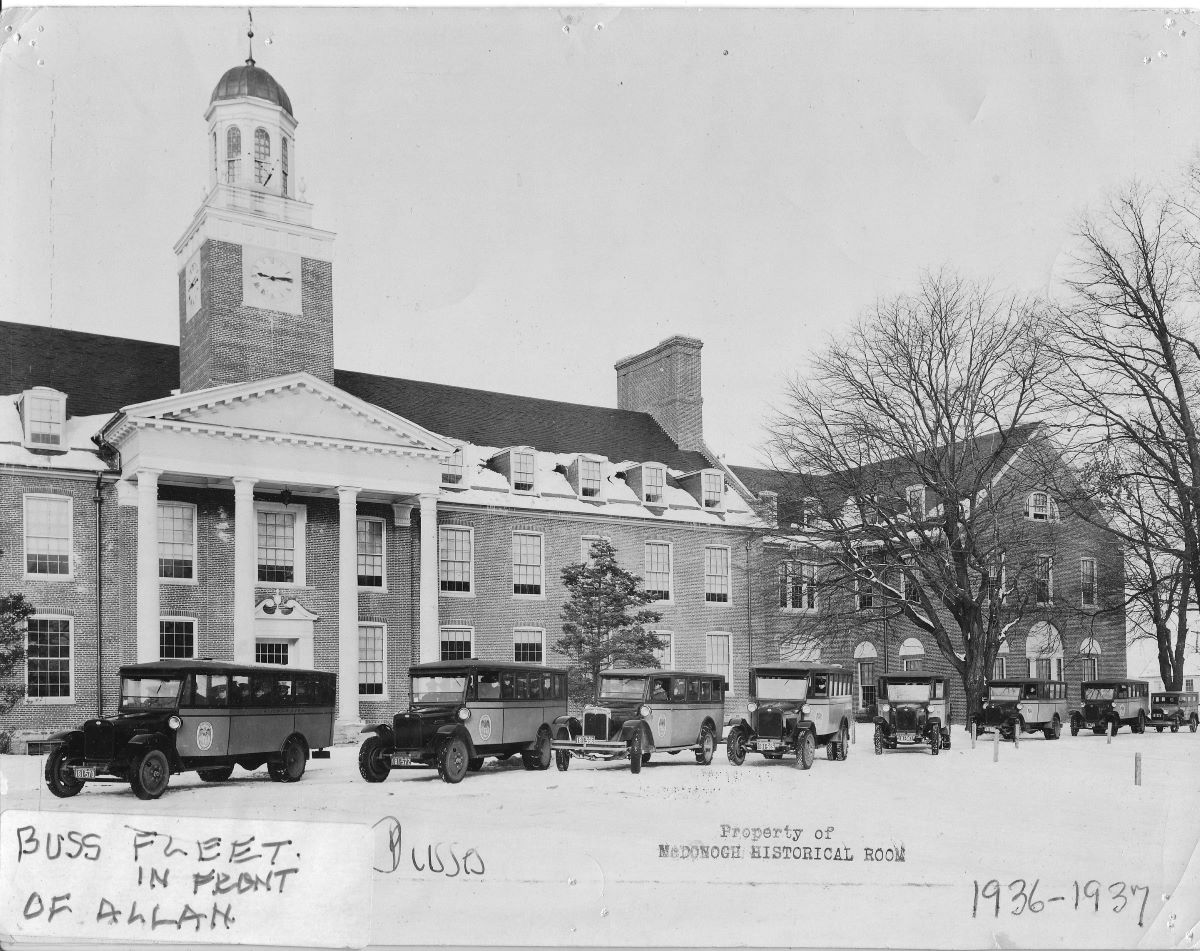Shortly after Doc Lamborn arrived at McDonogh in 1926, in a special report to the Board, he argued that the School could both increase its usefulness and substantially improve its financial position by accepting day students. The following school year, 20 students enrolled as day students—they became known as day hops.
Transportation to school was via a fleet of five-passenger cars driven by boarders who picked up the day students from their homes or nearby McDonogh Station (see Story No. 44). Over the years, the number of day hops grew and eventually outnumbered the boarders.
The January 23, 1948, issue of The Week included the following Question of The Week: “What are the advantages of the boarders over the day hops?” Here are some different perspectives offered at the time:
James Dorsch (1949): A boarder will get his homework done more consistently than a day hop. Because of night school, he is not likely to “let it ride” when he engages in other activities. A boarder also does not spend any of his time riding on the bus every morning and evening.
Lawson Jump (1948): Although a day hop myself, being a boarder does have advantages. For one thing, the boarder has a better opportunity to use the various facilities of the School. Also, being a boarder keeps you out of trouble, at least while you are out on the “Hill.” Another item; you learn to appreciate home better.
Joe Ford (1949): Compulsory studies are a main advantage. If you’re a day hop, and the U.M.T (universal military training) goes through, you won’t have the experience of being away from home as does the boarder. By being a boarder you learn to stand on your own two feet instead of depending on someone else. You learn to appreciate your liberties, what few you have.
John Bouis (1949): Well, the boarder has the advantage of being out here over the weekend to work his demerits. He also has the service of a fine infirmary 24 hours a day. As boarders, we are allowed to take a weekend; our friends the day-hops can’t do this in one sense.
Anthony Griffiths (1949): Boarders can stay in condition without much trouble, and we get more sleep. Our meals are better balanced and more regular. We also enjoy a fuller athletic program.
Shelby Carter (1949): Being a boarder develops a boy’s character and influences his thinking. It enables a boy to learn to think for himself, to distinguish right from wrong. Also living in a group as we do helps the boys to get along with each other and consequently prepares them for life among their fellow human beings. Also, it gives the boys a sense of values in the respect that whatever privileges a boarder earns, he knows he had to work for.
